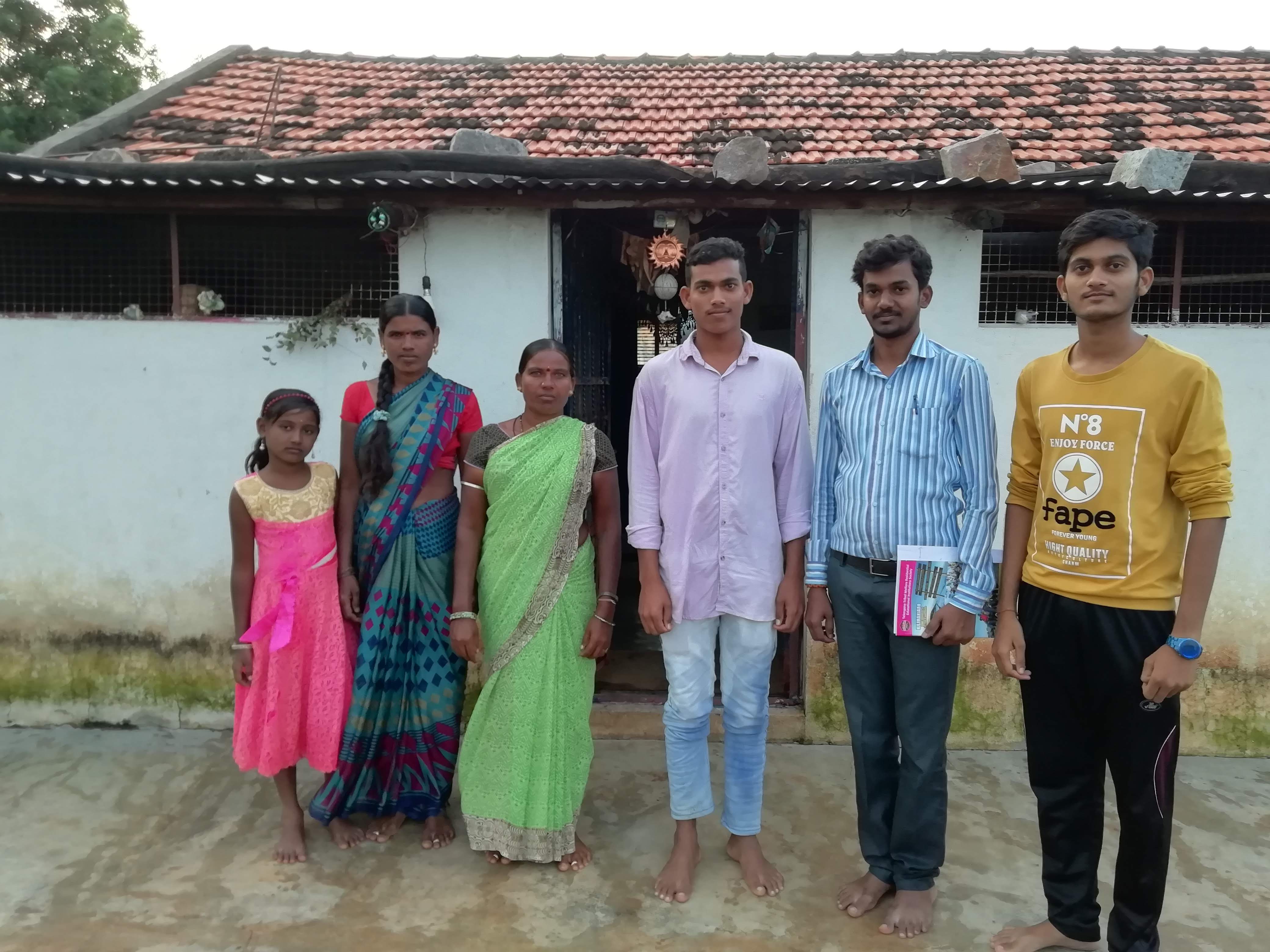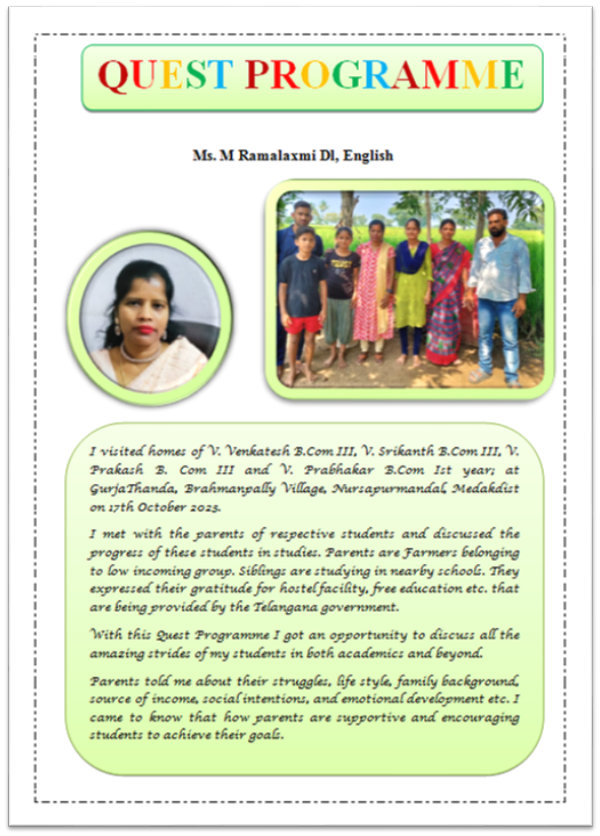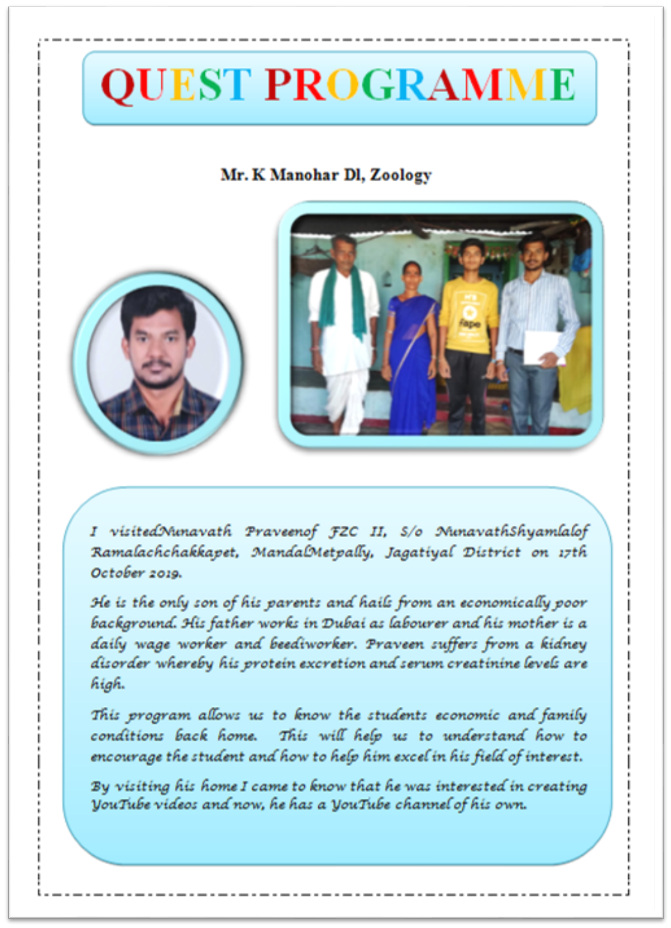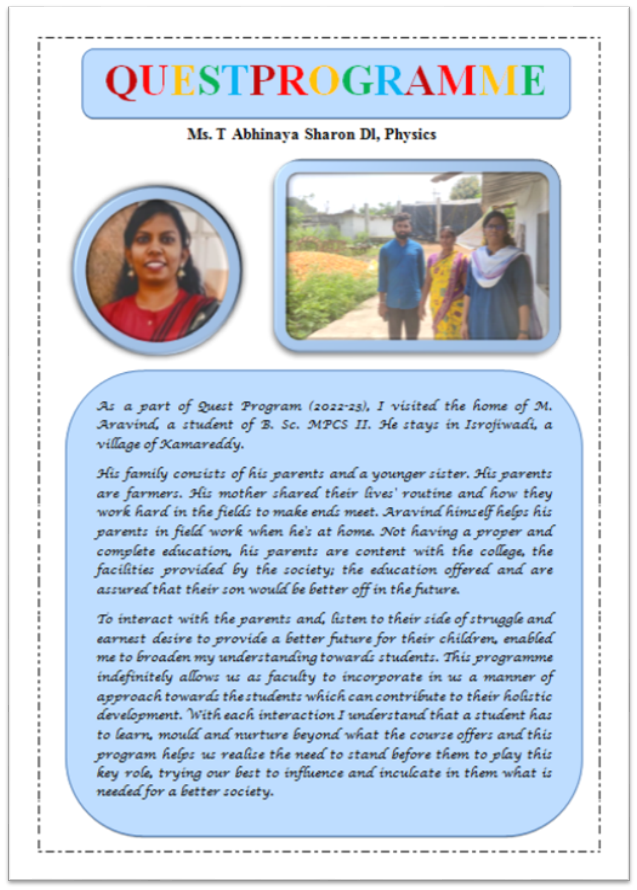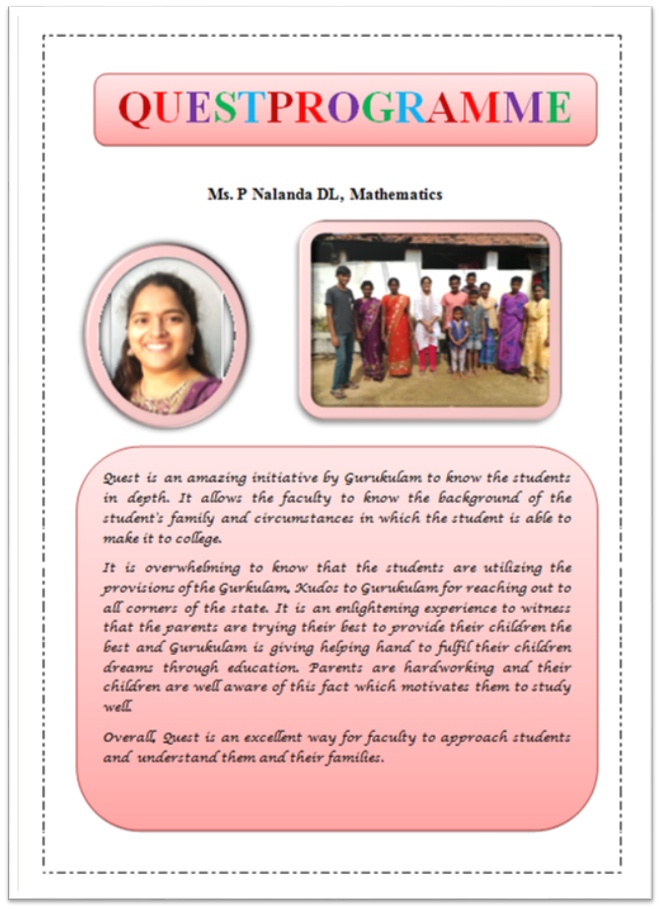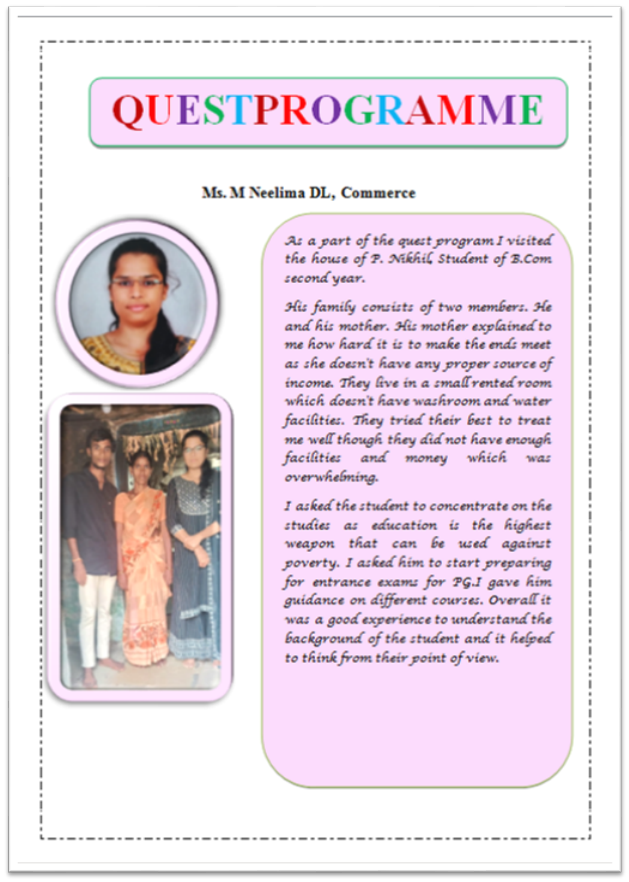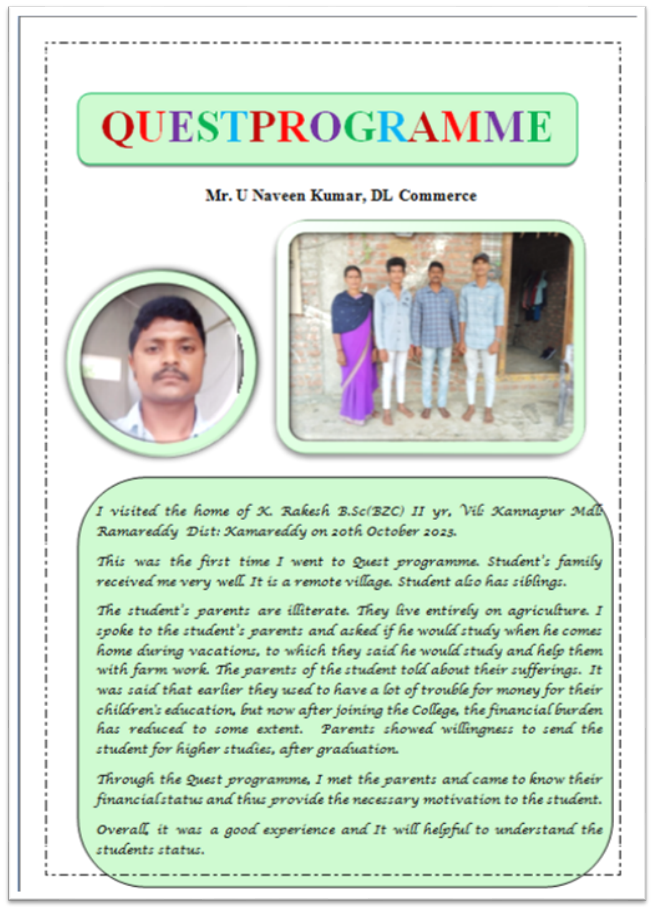Best Practices
The college has been putting its best efforts to fulfil the Vision of the institution and thus, there are several practices that can be put under the category of Best Practices.
BEST PRACTICE 1: Community Outreach Programmes
Click here to reach the Main tab of Community Outreach Club
Click here for complete details programmes of Community Outreach Club
Objectives of the Practice
- Community Outreach is about giving, contributing and helping those who cannot help themselves.
- It makes the students understand various problems of the society.
- It also influences the students to give back to the community.
- It makes students responsible towards their fellow citizens, their community and society in general
The Context
We all live in a society and the society is made of a number of people living different ways of life. Every year, the interested students are selected for the Community Outreach Programme and are encouraged to participate in the programme with zeal. The college takes into account the important issues that are happening in the society and makes the students familiar with the same. The current issues are taken into consideration in framing the programme. Some such programmes based on current issues were
- Meeting the fruit Vendors and informing them about not using one time usage plastic covers for packing
- Meeting Lorry drivers and discussing the Disha case and taking a pledge of respecting women
- Conducting corona awareness programme and teaching hand wash techniques just a week ahead of Lockdown in March 2020
- Conducting Village Learning Circles in the remote villages and thandas from July to September 2020 to provide uninterrupted education to the children coming from rural background, marginal sections and low income groups.
- Meeting the paddy farmers
- Corona awareness programme in Sarampally village again one day before lockdown on 6th January, 2022.
- Distribution of Lemon juice to labourers on the occasion of May Day.
Evidence of Success
Our programmes have been able to bring some change in the attitude of the students about the various problems that exist in the society and they were now ready to help the society and also pay back to the society in whatever way possible.
Our programme on Corona awareness and hand wash techniques received appreciation from parents as these children practiced the hand wash techniques and behaved responsibility during the covid pandemic.
A total of 18 Village Learning Centres operated successfully and 166 children of the thandas and remote villages benefitted from this programme. Some of our programmes have been reported in the Telugu newspapers as well.
Problems Encountered and Resources and Required
Some students were not willing to take up programmes that required them to meet very poor
and destitute. They were also not willing to reach the remote areas. However with
encouragement of faculty and support of few willing students the practice was initiated and
successfully implemented.
BEST PRACTICE 2: Quest Programme
The college conducts a unique programme called QUEST. This programme is taken up during the Dasar Vacation, when students are at home with their family mostly in the month of October, every year. Faculty go beyond their means to reach the remote villages and thandas to meet the students and their family. This strengthens the bond between the teachers and the students. We get a glipmse of the conditions of living of the students and the financial background of the family. The people of the thandas and villages also learn about who we are and where we come from. It gives an opportunity to tell about our college to those people.
Objectives of the Practice
-
To learn and understand the living conditions of our students who come from remote areas
-
To strengthen the bond between faculty and the students in order to improve the teaching – learning process
-
To make people from remote areas learn about our college and its welfare activities
The Context
The faculty and the students should have and develop a bond which is necessary to make the process of
teaching and learning efficient. The faculty and students may also have age difference, which may hinder
the smooth interaction between teacher and the student. This apart, most of our students belong to the
tribal community and the teaching staff are mostly from non tribal community. Thus this programme
called Quest is important in bridging the gap between the teacher and tthe students and smoothen the
proess of teaching and learning and thus contribute to the fufillment of the Vision of the institution.
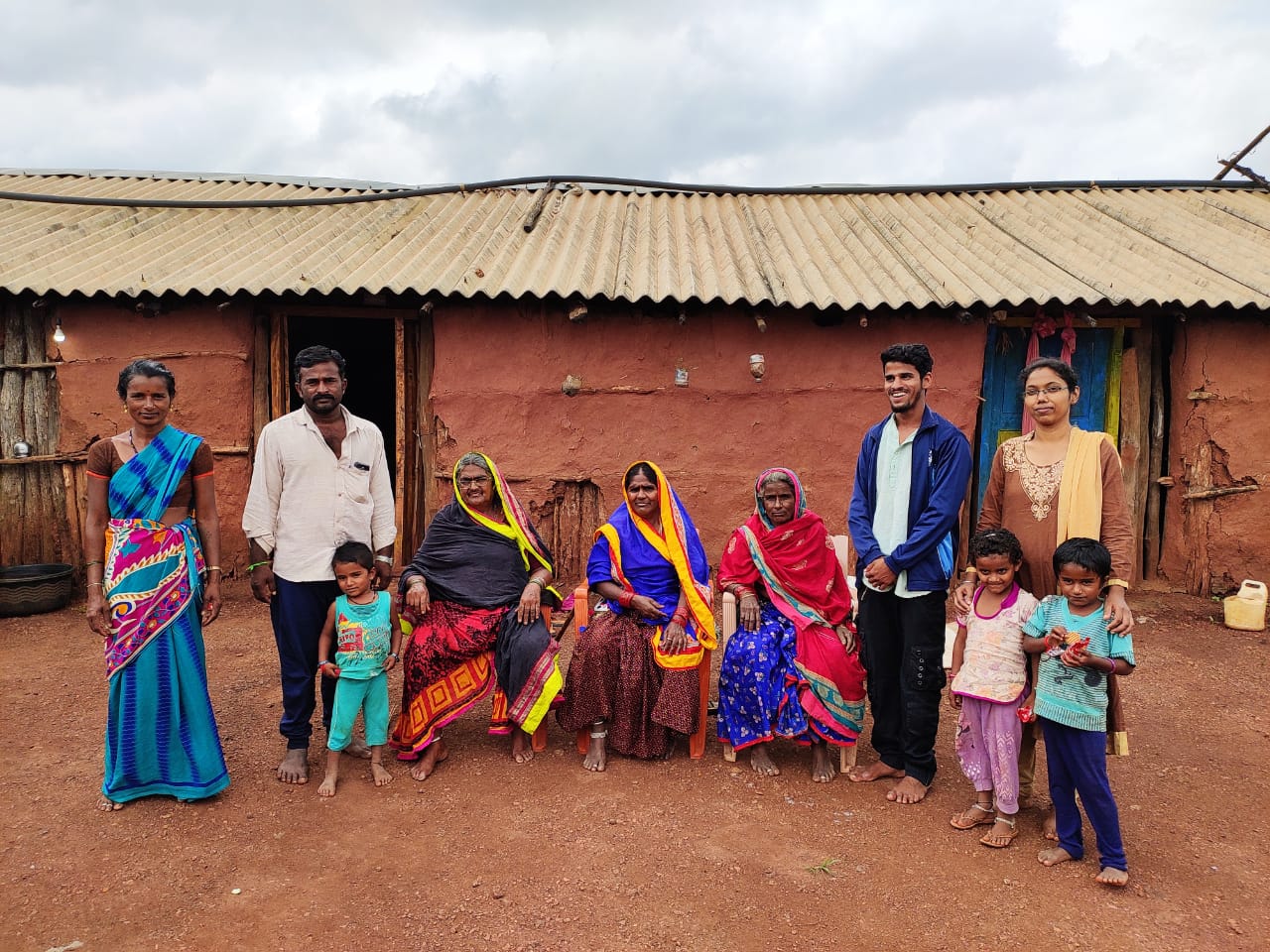
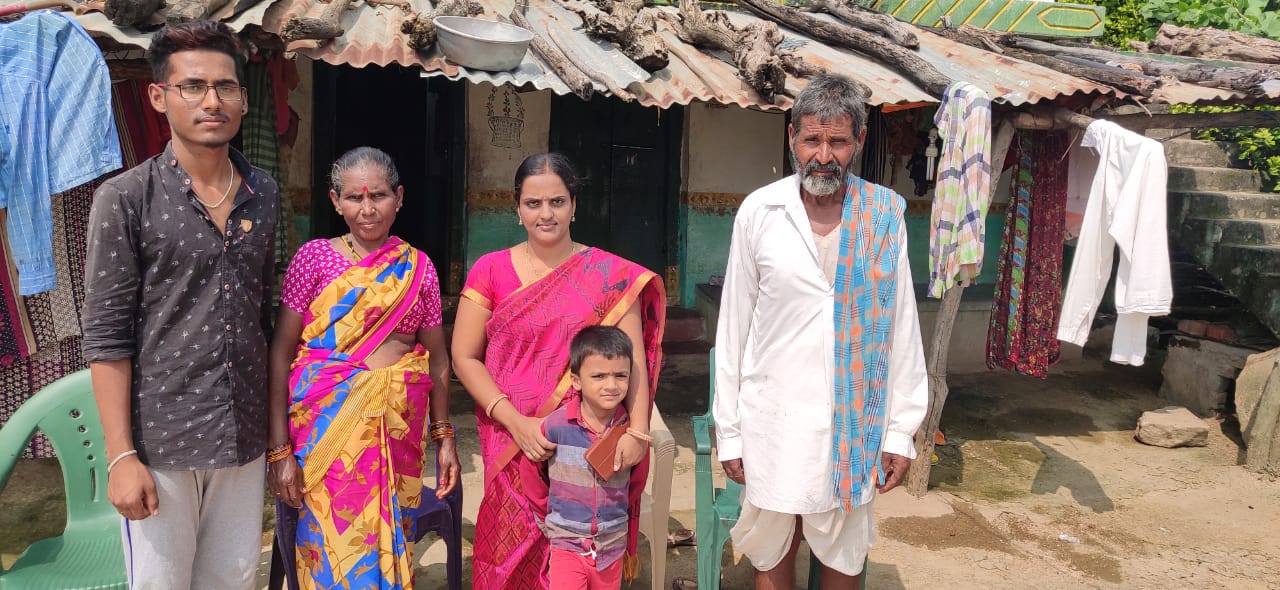
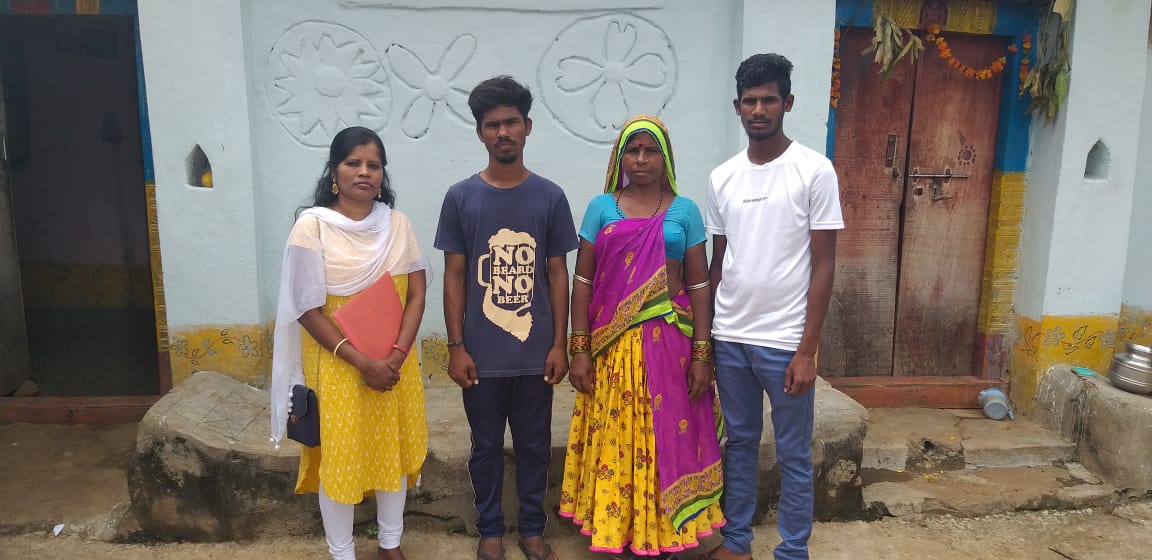
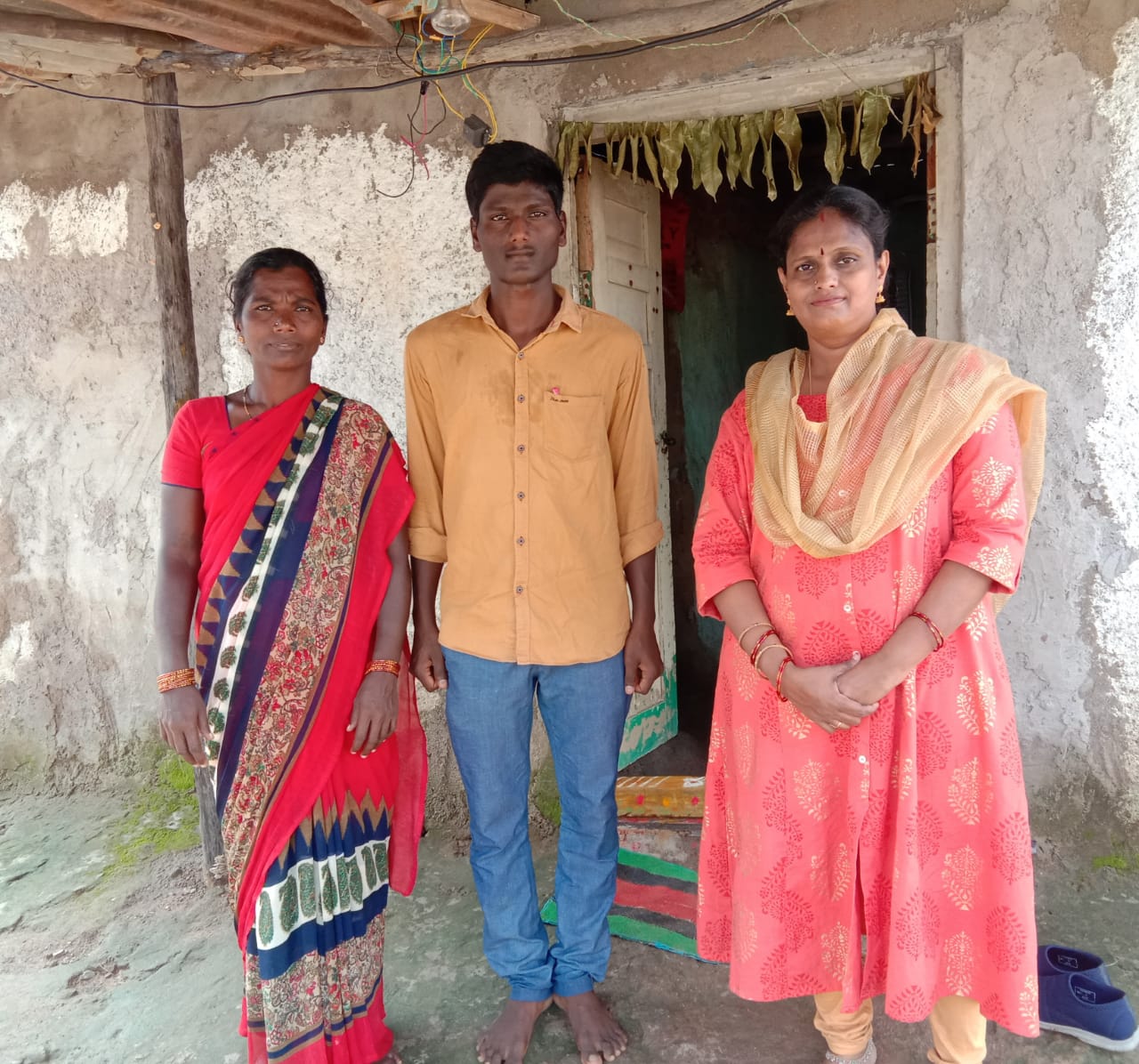
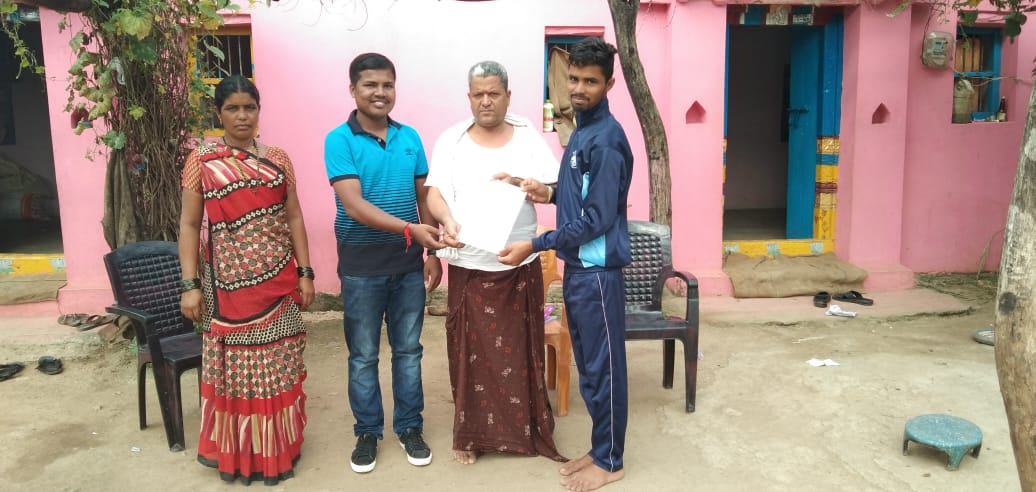
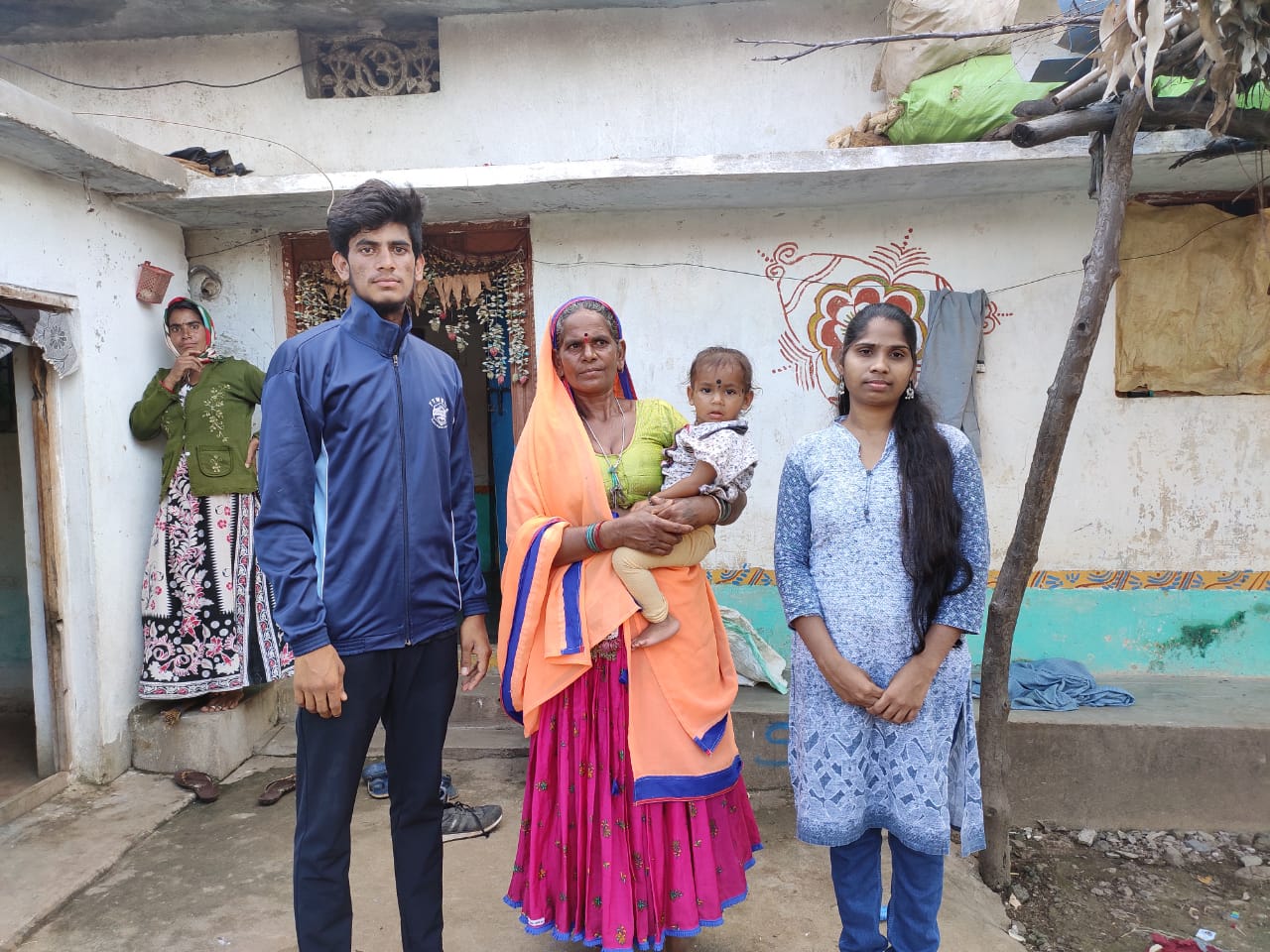
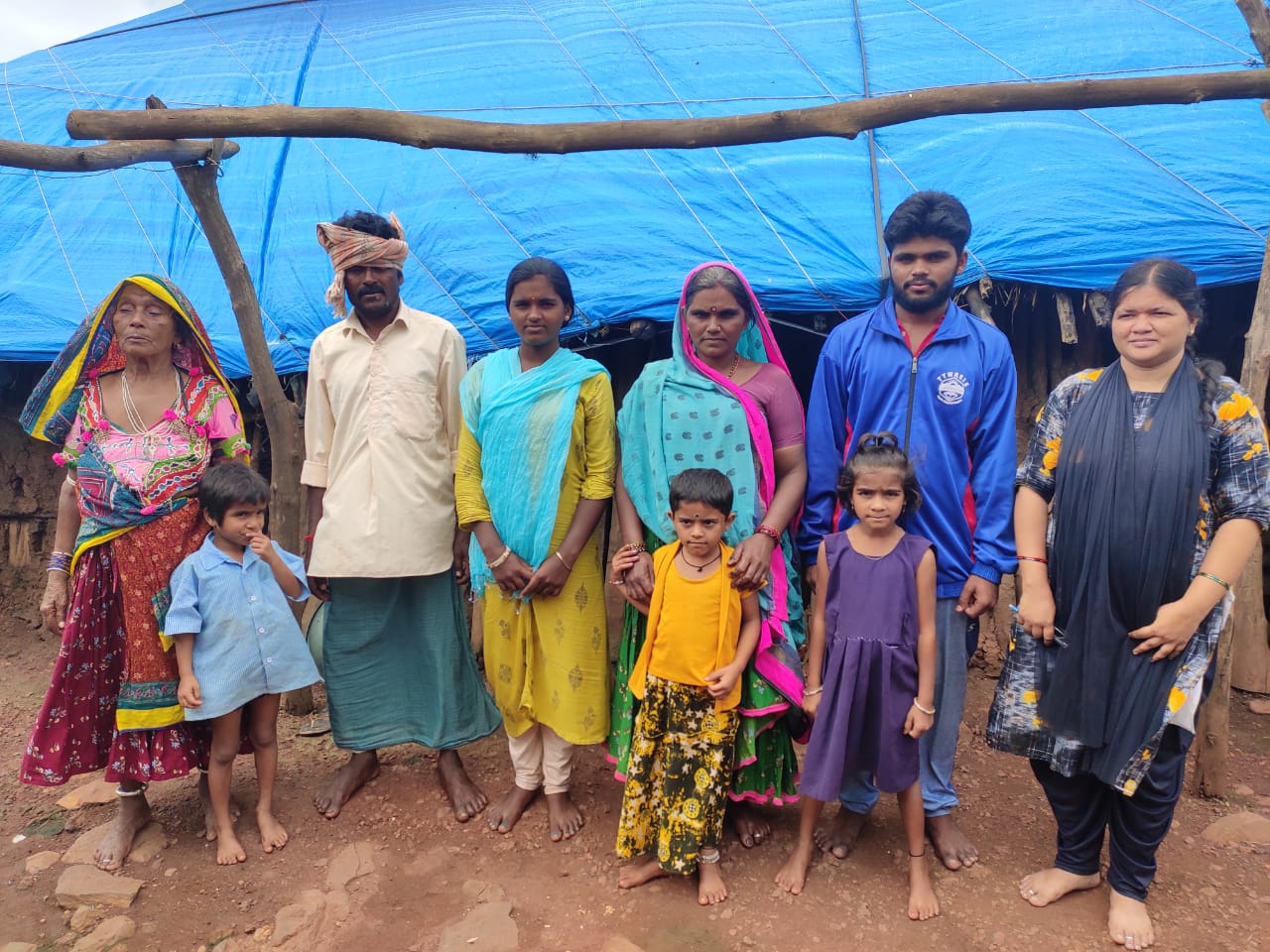
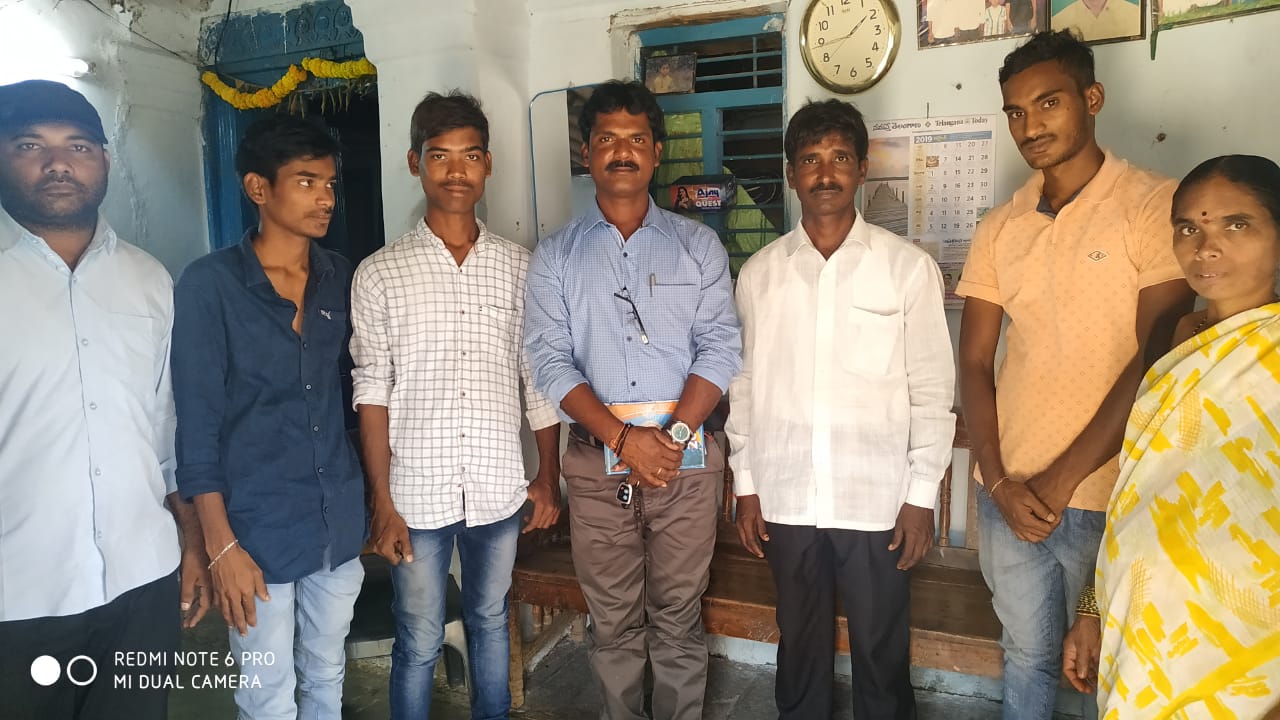
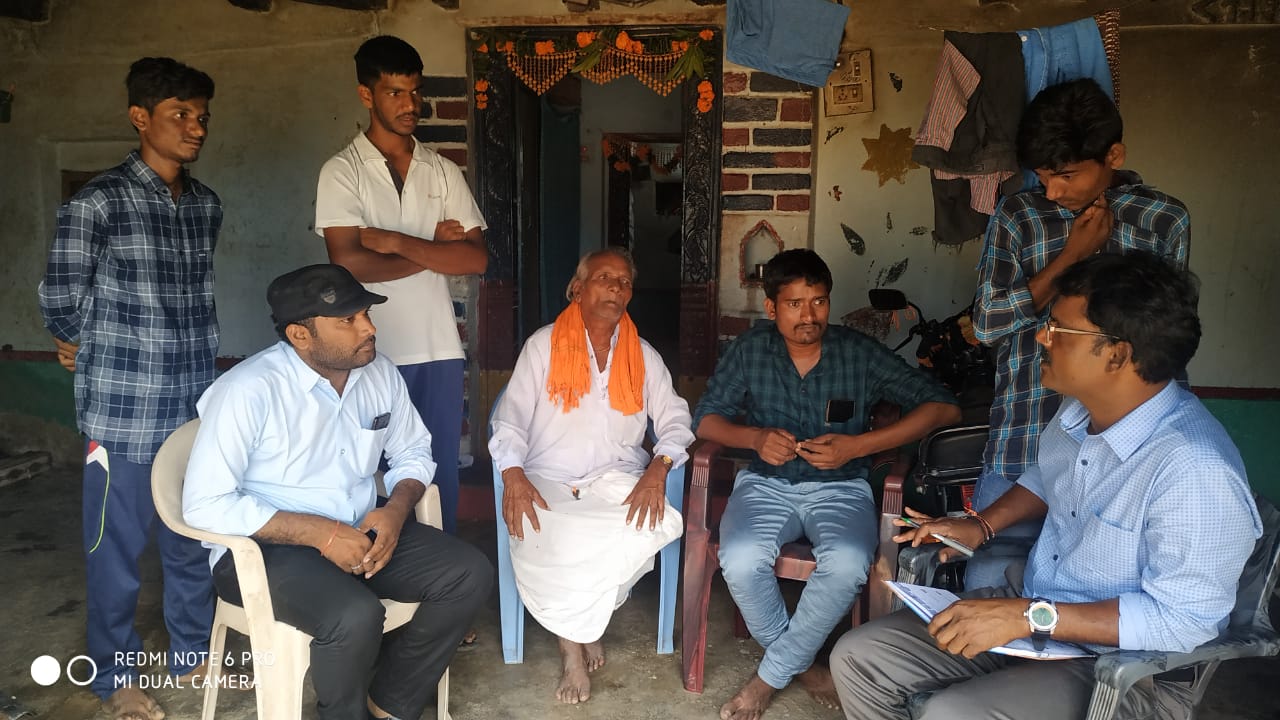
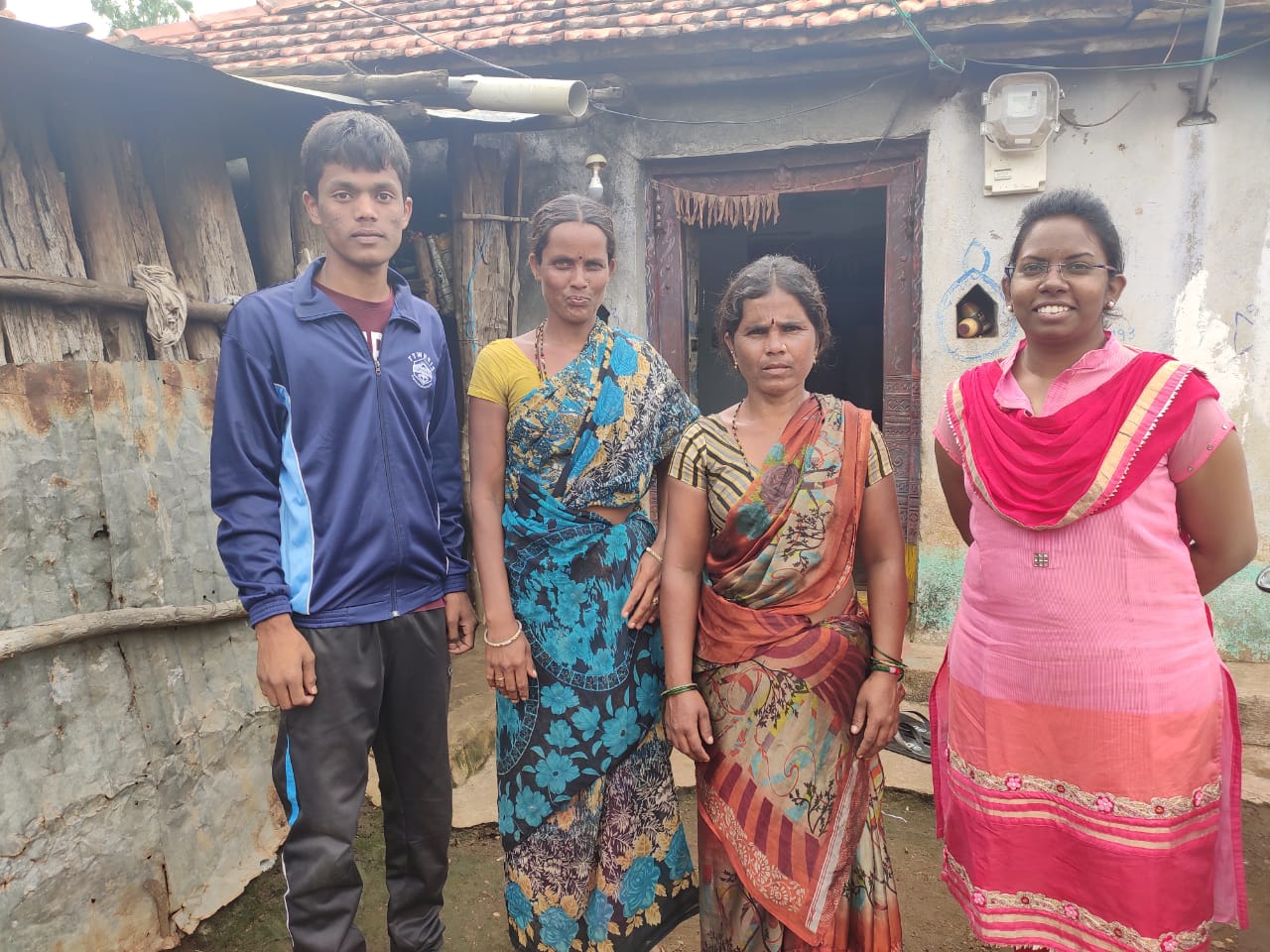
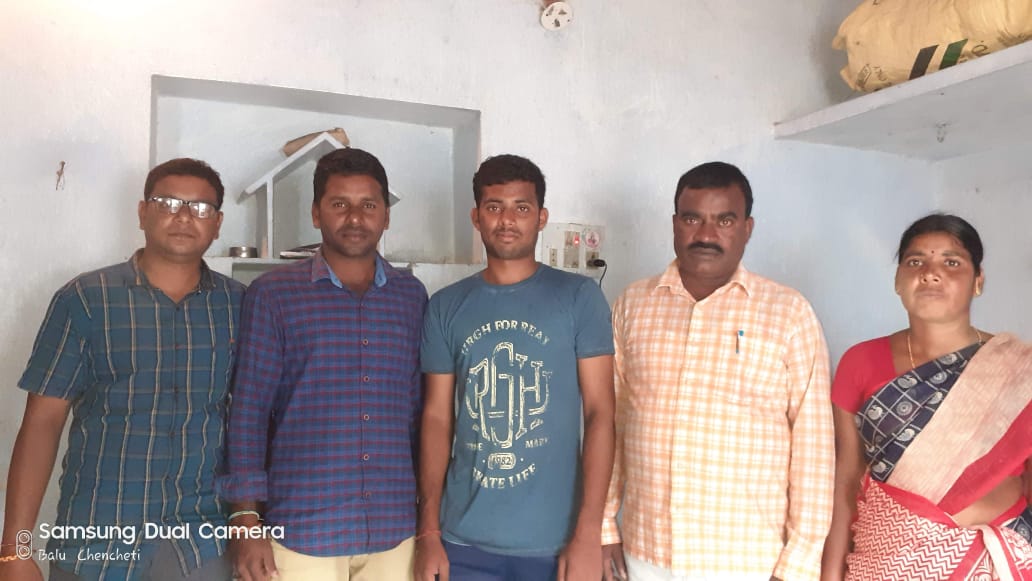
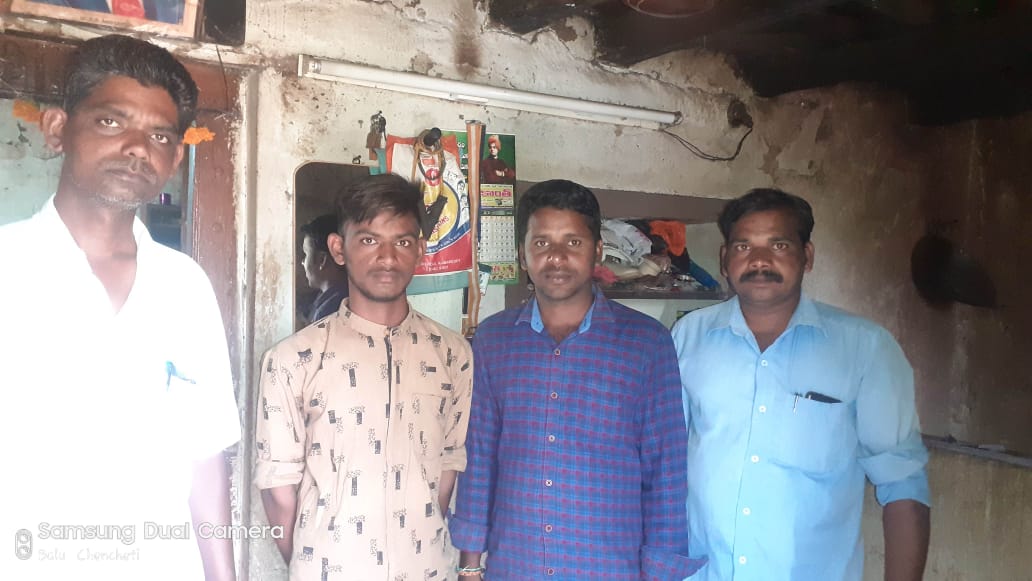
TESTIMONIALS by our Teaching Staff
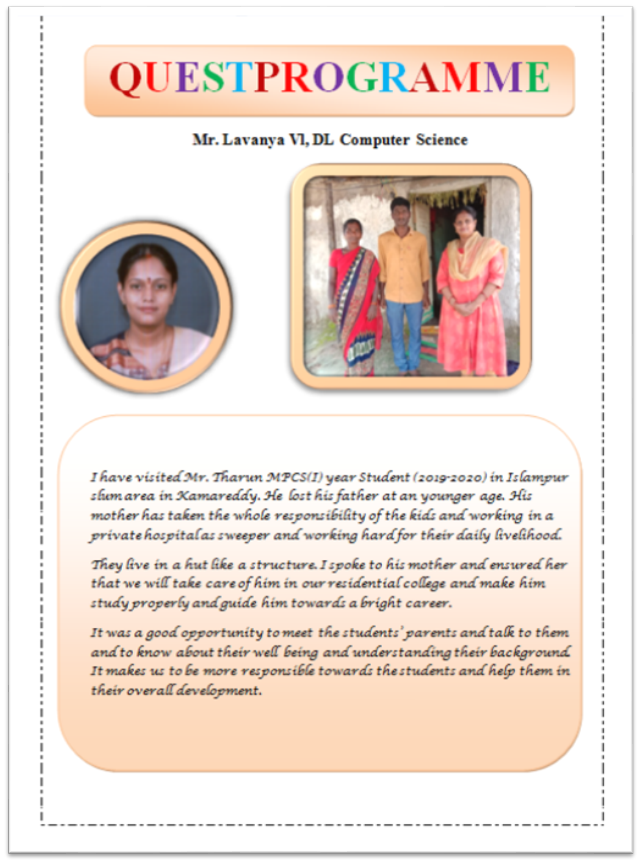
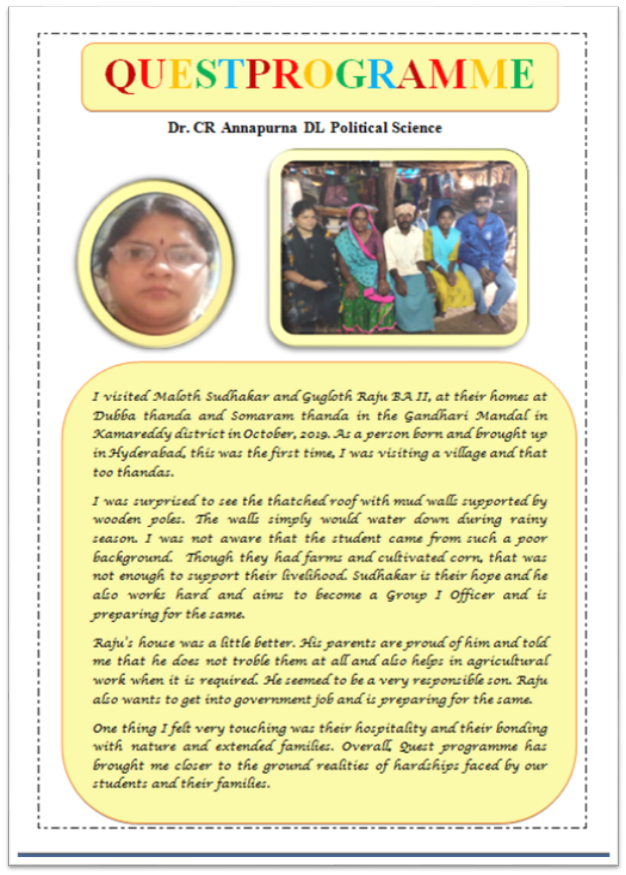
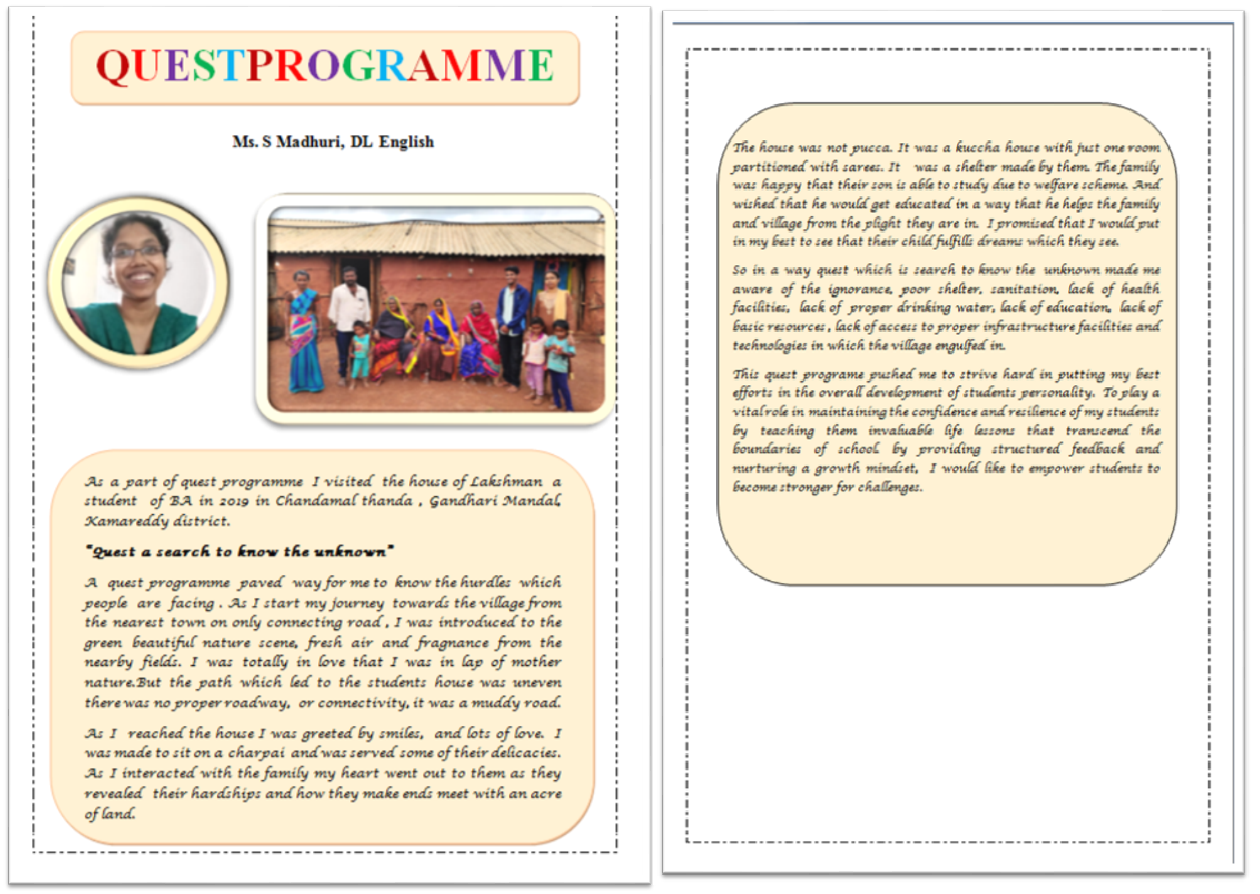
The Practice
The college has been practicing this programme continuously even during the covid pandemic. Our
faculty dedicate two days to meet the families of our students in the remote areas. They reach up to 100
km also to meet the student. The journey brings to eyes, the conditions, the roads, the remoteness, the
problems being faced by the students and their families in their day to day lives. Thus it also helps in
understannding the behaviour of the students who might be affected by the family issues like personal as
well as financial. The faculty gets a firsthand experience about the need of welfare and importance of
education in the life of these students.
Even the students will learn to have faith in the teachers and this will make them efficient learners. The
Quest programme thus builds the trust between the faculty and the students. Many of the students feel
happy to receive the faculty and the day becomes a memorable day in their lives. The visit is given
importance in the villages and thandas as not many such people come to visit their homes.
Evidence of Success
The Quest programme has helped in building the bond between the teachers and the students, which is
evident from the continuity of the connections beyond graduation.
Problems Encountered and Resources and Required
The only problem that the faculty have faced is the remoteness of the places they visit. There are
no proper road connectivity, and sanitation facilties. The travel expenses are borne by the faculty
during this journey which is nominal compared with the hospitality the faculty receive at the
villages and thandas. This kind of hospitality and interconnectedness among the villagers and the members of the thandas is something most of the faculty miss in their daily life as several of thefaculty come from urban areas.
BEST PRACTICE 3: Green Campus and Green Initiatives
Click here to reach the main tab of Green Campus Initiatives
Our College is situated amidst the green fields. We are fortunate to get fresh air to breathe and enjoy the nature, on a daily basis. Thus, it is our responsibility to ensure that we too practice green measures within the campus and promote the same beyond the campus.
The following steps are taken up in the campus.
- Plantation drives
- Seedballs/seed bombs
- Segregation of waste
- Replacing plastic in the campus
- Water Conservation
- Energy Conservation
- Healthy Thursday
- Awareness Programmes
BEST PRACTICE 4: Gender Equality and Women Empowerment Cell
Click here to reach the main tab of Green Campus Initiatives
Women constitute almost 50% of the Humankind. Their contribution in day to day life is invaluable and priceless. They render their services in every field of life, from daily household activities, as agricultural labourers, industrial workers, in the managerial positions, in service sector. However, women have not been able to; or rather, have not been allowed to reap the benefits of development, on par with men.
Thus women empowerment has become the buzzword of development discourse and thus, it is important to ensure the same in every field of life. Telangana Tribal Welfare Residential Degree College (Men) Kamareddy has a policy of Gender Equality that encourages equal participation of women in the College. Though the college is exclusively a men's college, the women are equal ratio in the Teaching faculty.
Further, the college recognises the fact that gender equality should also be inculcated among the male students who become the stakeholders of the society in the future. Further, the college is dedicated towards creating an egalitarian society which encompasses gender equality.
The College has thus established 'Women Empowerment Cell' during the academic year 2019-2020 and the same has been remaed as 'Gender Equality and Women Empowerment Cell' in 2023.
Composition
As a matter of policy, the Women Empowerment Cell shall be constituted as follows:
- One coordinator and 4 members
- Coordinator shall be a female faculty
- Principal shall not be a member
- One member shall be a male faculty
Objectives
- To make the students coming from rural and tribal background realise the importance of gender equality.
- To make students ready for a new world based on gender equality
- To create a positive environment in their families and the villages and thandas.
- To transform the students into forerunners of gender equality in their peer groups.
- To create a friendly and favourable environment for the women faculty and women workers in the institution.
- To promote gender equality in terms of academic and administrative functioning of the institution.
The functions
- To conduct awareness programmes, talks and seminars on gender equality and women empowerment.
- To screen movies, documentaries that give the message of gender equality and women empowerment.
- To conduct outreach programmes on gender equality and women empowerment.
- To celebrate National and International Women’s Day.
- To organise recreational activities during vacation for the women faculty.
BEST PRACTICE 5: Club Activities
The college has several Student Clubs and activities are conducted;
- Music and Dance Club
- Literary Club
- Theatre Club
- Creative Club
- STEMs Club
- E Plus Club
BEST PRACTICE 6: House Master
House Master:
Our College practices a unique system of House Master ship. Each class of students are assigned to a Teaching faculty, who takes up the role of a Class Teacher, a Mentor, a Guide, a Care Taker and more than all a Loco-parent.
The students reach out to the House Master for almost everything from their education, personal issues, to the mess related issues and health issues. House Master's responsibilities include keeping a track of their overall study, their behaviour, their health, their career and their dreams beyong graduation. Further, the House Masters maintain the rapport with the students even after the completion of their graduation. Apart from the House Masters, some of the subject faculty leave a lasting impact on the students and thus, they keep updating with their achievements and also seek suggestions and motivation. Such connections make the faculty satisfied and motivates them to put more efforts for the development of the students and the institution.
For many faculty, this job is not an occupation of making money, but an opportunity of serving the society. Overall, our College thrives hard to meet its goals, implements the mission and move towards fulfilling its vision of creating an 'Egalitarian Society'.
BEST PRACTICE 7: Escort Duties
Escort Duties
The students are escorted by one faculty, whenever they have to go to other places for attending exams or training or any other important event as part of their college life. The faculty are sent in teurns to ensure that no one burdened unecessarily. Further, even female faculty happily do the escort duties. This only to ensure that the students reach their destination, exam centres, training centres safely and without any tension.
Finally, the college ensures the holistic learning and holistic development of the student.

